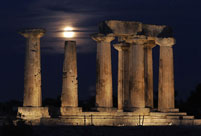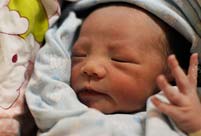 Interpreting the eight issues of the G20 summit
Interpreting the eight issues of the G20 summit
 Wild golden monkeys live at Qinling Mountains in NW China
Wild golden monkeys live at Qinling Mountains in NW China
 Weekly selection of world photos (Aug.19-Aug.24)
Weekly selection of world photos (Aug.19-Aug.24)
 Tibetan ethnic costumes presented during tourism festival in NW China
Tibetan ethnic costumes presented during tourism festival in NW China
 Military plane crashes in NE China
Military plane crashes in NE China
 Summer jobs: A or B
Summer jobs: A or B
 Vintage cars exhibited at auto cultural festival in China's Shanxi
Vintage cars exhibited at auto cultural festival in China's Shanxi
 Reading by the tongue
Reading by the tongue
 Those embarrassing copycat buildings
Those embarrassing copycat buildings
Contaminated whey protein concentrate involved in a recent botulism scare did not contain the bacterium clostridium botulinum and so didn't present a danger to health, New Zealand authorities said Wednesday.
The bacteria in the contaminated whey protein from dairy giant Fonterra was clostridium sporogenes, a different strain that did not produce neurotoxins, New Zealand's Ministry of Primary Industries said.
There are no known food safety issues associated with clostridium sporogenes, although at elevated levels certain strains may be associated with food spoilage, the ministry added.
Original tests conducted by Fonterra and a New Zealand government research institute had indicated the presence of clostridium botulinum, raising fears that infant formula and sports drinks made from the product and widely exported could be potentially dangerous, Reuters reported.
The botulism scare triggered a recall of products made by multinational brands that may have contained the whey protein in a number of markets, from China to the Middle East and Southeast Asia. It also prompted bans in Russia and Sri Lanka, while other countries stepped up scrutiny of Fonterra's dairy products.
Dirty pipe at plant
The contamination was believed to have come from a dirty pipe at a North Island processing plant.
"We went to world-leading labs, which are accredited and can test for this. That has given us a clear and definitive sense that it isn't clostridium botulinum," the ministry's Acting Director-General Scott Gallacher told reporters. "There is no food safety risk here."
Fonterra CEO Theo Spierings said he was "very relieved" that the tests showed the company's products did not pose any food safety risk but he said the company "did the right thing" in announcing the possible risk earlier this month.
"When you go through a global recall, you know it will affect your reputation," Spierings told reporters. "If we had not acted on this, and if something had happened with one child in the world, then it would have caused a massive reputation issue in the long term, or even you could be wiped off the map and possibly face closure."
Regulators informed
He added: "We share a sense of relief about the further and definitive test results and this in no way lessens our commitment to undertaking a thorough review into what happened, and to learn from this experience."
The ministry said it had informed overseas regulators of the results and would be providing a full diagnostic report shortly.
On August 2, Fonterra said it had received test results indicating a strain of clostridium botulinum in a sample, the bacteria that could cause botulism, which affects nervous and respiratory systems and can even cause paralysis and death. The contaminated raw material, a total of 38 tons, was produced in May 2012, Fonterra said at the time.
New Zealand Trade Minister Tim Groser said the initial contamination scare based on Fonterra's initial test result was "an embarrassment" to New Zealand, whose reputation as a source of clean, safe food products was questioned by global consumers. Fonterra controls around a third of the world's dairy exports.
"We checked the information, the information turned out to be false, the consequences of this have been very serious, (we're) not comfortable about that, and we need some answers to how all this happened," he told Radio New Zealand, noting that a government inquiry was one of four currently underway.
 Weekly selection of world photos (Aug.19-Aug.24)
Weekly selection of world photos (Aug.19-Aug.24) Army aviation brigade in actual-troop drill
Army aviation brigade in actual-troop drill Top 10 Chinese provinces for the well-heeled
Top 10 Chinese provinces for the well-heeled  Fan Bingbing poses for Malaysian magazine Citta Bella
Fan Bingbing poses for Malaysian magazine Citta Bella Wild dream: Hell-like training for bodyguard
Wild dream: Hell-like training for bodyguard  Zhang Xinyi covers COSMOPOLITAN
Zhang Xinyi covers COSMOPOLITAN The story of a savior sibling
The story of a savior sibling China’s weekly story
China’s weekly story  A collection of bizarre rooftop buildings around China
A collection of bizarre rooftop buildings around China 100th birthday of 'Little Mermaid'
100th birthday of 'Little Mermaid' China, U.S. conduct joint anti-piracy drill
China, U.S. conduct joint anti-piracy drill  Adorable! Marmots get along well with herdsmen
Adorable! Marmots get along well with herdsmen 2013 Taiwan Int'l Tourism Expo kicks off in Taipei
2013 Taiwan Int'l Tourism Expo kicks off in Taipei Photo story: Take a gap year
Photo story: Take a gap year Nokia's Global Headquarters: visiting a declining empire
Nokia's Global Headquarters: visiting a declining empireDay|Week|Month